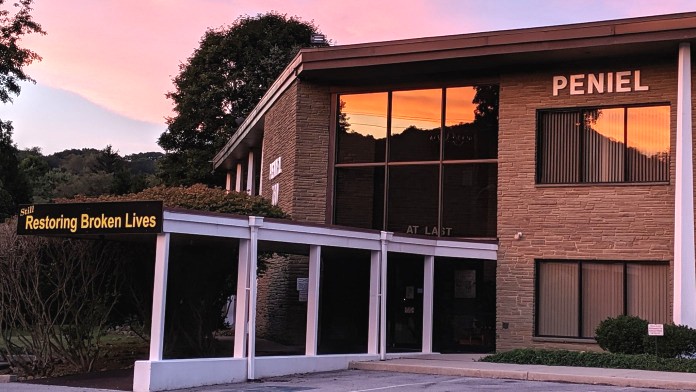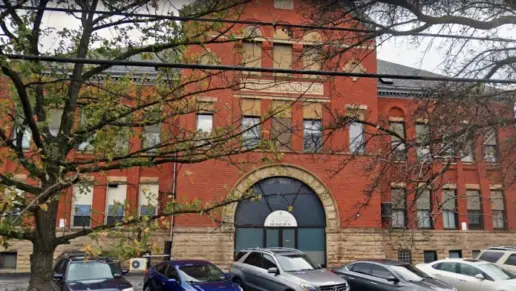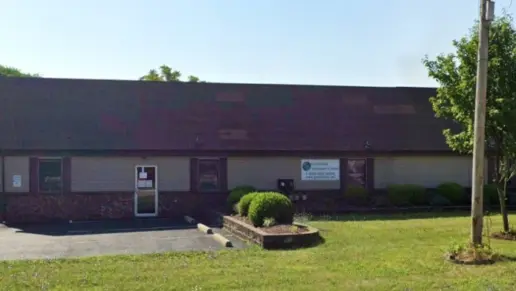About Peniel Residential Drug and Alcohol Treatment Center
Peniel Residential Drug/Alcohol Treatment Center offers inpatient treatment for individuals with alcohol and/or substance addiction. The program includes individual counselling, group therapy, family support and more. Peniel Residential Drug/Alcohol Treatment Center is located at Johnstown, Pennsylvania.
The Peniel facility provides two dormitories, one for the Male program and the other for the Ladies program. Contact between male and female clients is strictly forbidden. They believe that in order to effectively treat an individual, distractions, including interaction with the opposite sex who is currently receiving treatment. Each patient is assigned to a room in his/ her appropriate dormitory with one to three other person(s). All residents are given a locker and drawer space to store personal belongings. The dormitories are spacious and comfortable, providing lounges, restrooms and showers, a laundry room, and a barbershop.
Residential life is incorporated into the patient’s treatment by creating an effective environment that allows each individual to exhibit his or her personality and receive constructive criticism from staff with the aim of changing negative behavior. The living conditions offer an ideal setting for residents to interact with each other in order to experience “real-life” problems and learn how to handle situations through constructive methods. Clients are required to take responsibility for their actions and encouraged to support and confront each other in healthy and positive ways.
Latest Reviews
Rehab Score
Gallery

Location
Other Forms of Payment
Private insurance refers to any kind of healthcare coverage that isn't from the state or federal government. This includes individual and family plans offered by an employer or purchased from the Insurance Marketplace. Every plan will have different requirements and out of pocket costs so be sure to get the full details before you start treatment.
Self-pay involves paying for treatment out of your own pocket. You can use savings or credit, get a personal loan, or receive help from family and friends to fund your treatment. If you don't have insurance or your insurance plan doesn't cover a specific program, self-pay can help ensure you still get the care you need.
Military members, veterans, and eligible dependents have access to specific insurance programs that help them get the care they need. TRICARE and VA insurance can help you access low cost or no cost addiction and mental health treatment. Programs that accept military insurance often have targeted treatment focused on the unique challenges military members, veterans, and their families face.
Addiction Treatments
Levels of Care
Treatments
The goal of treatment for alcoholism is abstinence. Those with poor social support, poor motivation, or psychiatric disorders tend to relapse within a few years of treatment. For these people, success is measured by longer periods of abstinence, reduced use of alcohol, better health, and improved social functioning. Recovery and Maintenance are usually based on 12 step programs and AA meetings.
Drug rehab in Pennsylvania is devoted to the treatment of addiction. Levels of care, treatment methods, and settings differ, but the aim of each program is to end drug dependency and empower participants to achieve long-term recovery.
Opioid rehabs specialize in supporting those recovering from opioid addiction. They treat those suffering from addiction to illegal opioids like heroin, as well as prescription drugs like oxycodone. These centers typically combine both physical as well as mental and emotional support to help stop addiction. Physical support often includes medical detox and subsequent medical support (including medication), and mental support includes in-depth therapy to address the underlying causes of addiction.
Substance rehabs focus on helping individuals recover from substance abuse, including alcohol and drug addiction (both illegal and prescription drugs). They often include the opportunity to engage in both individual as well as group therapy.
Programs


Clinical Services
Cognitive Behavioral Therapy (CBT) is a therapy modality that focuses on the relationship between one's thoughts, feelings, and behaviors. It is used to establish and allow for healthy responses to thoughts and feelings (instead of unhealthy responses, like using drugs or alcohol). CBT has been proven effective for recovering addicts of all kinds, and is used to strengthen a patient's own self-awareness and ability to self-regulate. CBT allows individuals to monitor their own emotional state, become more adept at communicating with others, and manage stress without needing to engage in substance abuse.
Research clearly demonstrates that recovery is far more successful and sustainable when loved ones like family members participate in rehab and substance abuse treatment. Genetic factors may be at play when it comes to drug and alcohol addiction, as well as mental health issues. Family dynamics often play a critical role in addiction triggers, and if properly educated, family members can be a strong source of support when it comes to rehabilitation. Peniel believes that because addictions affect more than just the abuser, and that the majority of the time it’s the families hurt most, they should have a role in their loved one’s treatment. Because of this philosophy, family counseling sessions are incorporated.
Group therapy is any therapeutic work that happens in a group (not one-on-one). There are a number of different group therapy modalities, including support groups, experiential therapy, psycho-education, and more. Group therapy involves treatment as well as processing interaction between group members.
In individual therapy, a patient meets one-on-one with a trained psychologist or counselor. Therapy is a pivotal part of effective substance abuse treatment, as it often covers root causes of addiction, including challenges faced by the patient in their social, family, and work/school life. Individual counseling is scheduled on a weekly basis between the primary counselor and the counselee. In these sessions patients express their personal issues and how they are feeling. Counselors convey wisdom and insight and develop a healthy, Christian analysis for treatment.
Trauma therapy addresses traumatic incidents from a client's past that are likely affecting their present-day experience. Trauma is often one of the primary triggers and potential causes of addiction, and can stem from child sexual abuse, domestic violence, having a parent with a mental illness, losing one or both parents at a young age, teenage or adult sexual assault, or any number of other factors. The purpose of trauma therapy is to allow a patient to process trauma and move through and past it, with the help of trained and compassionate mental health professionals.
Contact Information
760 Cooper Avenue
Johnstown, PA 15906


